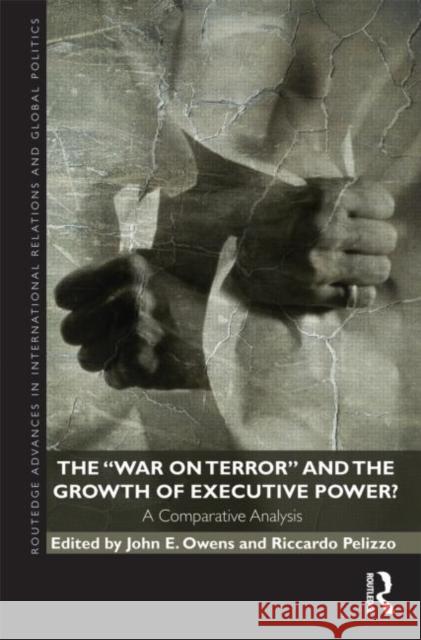The War on Terror and the Growth of Executive Power?: A Comparative Analysis » książka
The War on Terror and the Growth of Executive Power?: A Comparative Analysis
ISBN-13: 9780415489331 / Angielski / Twarda / 2010 / 236 str.
The War on Terror and the Growth of Executive Power?: A Comparative Analysis
ISBN-13: 9780415489331 / Angielski / Twarda / 2010 / 236 str.
(netto: 699,68 VAT: 5%)
Najniższa cena z 30 dni: 705,23
ok. 22 dni roboczych.
Darmowa dostawa!
The 9/11 attacks on New York and Washington prompted a "global war on terror" that led to a significant shift in the balance of executive-legislative power in the United States towards the executive at the expense of the Congress. In this volume, seasoned scholars examine the extent to which terrorist threats and counter-terrorism policies led uniformly to the growth of executive or Government power at the expense of legislatures and parliaments in other political systems, including those of Australia, Britain, Canada, Indonesia, Israel, Italy, and Russia. The contributors question whether the "crises" created by 9/11 and subsequent attacks, led inexorably to executive strengthening at the expense of legislatures and parliaments. The research reported finds that democratic forces served to mitigate changes to the balance of legislative and executive power to varying degrees in different political systems. This book will be of interest to students and researchers of Comparative Government Politics and International Politics.
Terrorism has become a global phenomenon over recent decades. The attacks on the United States in 2001 prompted a "global war on terror", the implementation of which has led to a significant aggrandizement of executive power in the US at the expense of the legislature, ostensibly the "most powerful" representative assembly in the world.
In this volume, seasoned scholars focus on the effects of terrorism and antiterrorism on executive-legislative relations in a range of countries whose citizens have experienced terrorism, including those from Australia, Indonesia, Israel, Italy, Russia, and the UK. Has the pattern of accretion of executive power in the United States been replicated in all these systems? Or have other institutional and other factors, including the structure of the party system and the specific coalitional nature of the governments, served to mitigate changes in the balance of legislative and executive power in these systems?
The volume, which is based on original research, reaches some surprising conclusions, which disabuse expectations based on the US experience.











